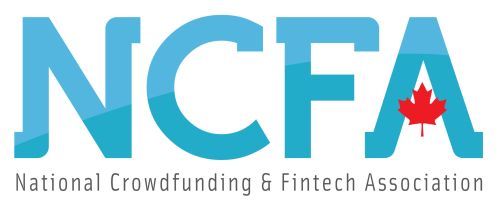Insights and Challenges of Raising Capital via Reg A+
Reg A+ | April 2, 2024

 Image: Freepik
Image: FreepikThe complexities of Reg A+, Opportunity to Raise Up to $75 Million via Online Solicitation
The Jumpstart Our Business Startups (JOBS) Act of 2012 introduced Reg A+, enabling companies to raise up to $75 million from both accredited and non-accredited investors offering businesses a significant runway for growth through online solicitation. Reg A+ represents a flexible and accessible means for smaller companies to access investment capital markets, balancing the need for capital formation with investor protection measures. Learn more: SECs page on Reg A/A+
Overview of Reg A+
Company Eligibility
- Generally, only companies incorporated and operating in the United States or Canada are eligible to use Reg A+. This includes both private and public companies that are not already required to file reports with the SEC under the Securities Exchange Act of 1934.
- Companies must not have any “bad actors” in key positions. This includes directors, officers, significant shareholders, and others associated with the offering who have not been involved in certain criminal convictions, regulatory or court orders, or other disqualifying events related to securities laws in the past.
See: CCA Report: Investment Crowdfunding 2024: Key Insights
- There are no specific financial requirements for companies to qualify for Reg A+, unlike other exemptions that might require a certain asset size or financial performance. However, Tier 2 offerings require audited financial statements, which implies a certain level of financial organization and transparency.
- Certain types of businesses are not eligible to use Reg A+. These typically include investment companies registered or required to be registered under the Investment Company Act of 1940, companies that plan to offer and sell asset-backed securities, and certain other excluded categories.
- Companies must not have any outstanding filings including failure to file required reports or providing inaccurate information in previous filings.
- Companies that are subject to the reporting requirements of Section 13 or 15(d) of the Securities Exchange Act of 1934 are eligible for Tier 2 offerings but are generally not the primary target of the Reg A+ exemption, which is aimed at easing access to capital for smaller, non-reporting companies.
Two Tiers of Offerings
- Tier 1 allows companies to raise up to $20 million within a 12-month period. This tier requires companies to meet state securities (blue sky) registration and qualification requirements, which can vary from state to state.
See: U.S. Expanding Access to Capital Act Boosts Startup Funding
- Tier 2 allows companies to raise up to $75 million within a 12-month period. Tier 2 offerings are exempt from state securities registration and qualification, but they require issuers to provide audited financial statements, adhere to stricter ongoing reporting requirements, and limit the amount non-accredited investors can invest based on certain financial thresholds.
Other Considerations
- For Tier 2 offerings, there are limits on the amount that non-accredited investors can invest, which is based on the greater of their annual income or net worth for natural persons, providing a layer of protection to retail investors.
- Tier 2 issuers are subject to ongoing reporting obligations, including annual reports, semi-annual reports, and current event updates, which increase transparency and investor protection.
- Issuers must prepare an offering statement on Form 1-A, which includes three parts: the notification, the offering circular, and exhibits. This document must be filed with and qualified by the SEC before sales can be made under Reg A+.
- Both Tier 1 and Tier 2 issuers can “test the waters” or gauge investor interest in a potential offering before and after the offering statement is filed, allowing companies to better understand market interest without committing to a full offering.
See: SEC Publishes Accredited Investor Definition Review
- Tier 2 offerings are exempt from state securities registration and qualification requirements, significantly reducing the complexity and cost of compliance for issuers aiming to raise capital across multiple states.
- Shares sold in Tier 2 offerings can be freely traded by non-affiliates in the secondary market post-offering, potentially providing investors with liquidity and companies with a more attractive investment proposition.
Challenges and Insights: ‘Good to Know’
The Reg A+ journey comes with regulatory intricacies, high costs, and operational challenges that demand attention and strategic planning. Below are some insights based on an issuer’s firsthand experience based on an interview conducted by our colleagues at Crowdfund Insider in the U.S..
- Full compliance with the SEC, including the submission and qualification of offering documents comes with an administrative burden and the need for a dedicated CFO and possibly internal counsel underscore the complexity of compliance.
- Launching a Reg A+ campaign can incur costs ranging from tens of thousands to $100,000, with ongoing expenses between $50,000 and $150,000+ annually. This financial commitment extends beyond the campaign, incorporating annual financial audits and additional regulatory compliance costs.
See: U.S. Seed Fundraising Insights and Trends
- There’s currently a limited number of experienced lawyers and accountants with specific Reg A+ expertise, and the discrepancy between claimed expertise and actual capability can derail timelines and inflate costs, highlighting the need for a preferred vendors list.
- Current ongoing reporting requirements are too burdensome, and should be simpler and without legalese for the benefit of investors. Compliance should be shorter and more concise which will in turn attract more issuers and help them with ongoing disclosure requirements. Issuers should take a proactive approach to compliance and financial planning.
Conclusion
With its dual-tier system allowing significant raises of up to $75 million, Reg A+ is a blend of opportunity and regulatory oversight, fostering an environment where startups and SMEs can thrive.

 The National Crowdfunding & Fintech Association (NCFA Canada) is a financial innovation ecosystem that provides education, market intelligence, industry stewardship, networking and funding opportunities and services to thousands of community members and works closely with industry, government, partners and affiliates to create a vibrant and innovative fintech and funding industry in Canada. Decentralized and distributed, NCFA is engaged with global stakeholders and helps incubate projects and investment in fintech, alternative finance, crowdfunding, peer-to-peer finance, payments, digital assets and tokens, artificial intelligence, blockchain, cryptocurrency, regtech, and insurtech sectors. Join Canada’s Fintech & Funding Community today FREE! Or become a contributing member and get perks. For more information, please visit: www.ncfacanada.org
The National Crowdfunding & Fintech Association (NCFA Canada) is a financial innovation ecosystem that provides education, market intelligence, industry stewardship, networking and funding opportunities and services to thousands of community members and works closely with industry, government, partners and affiliates to create a vibrant and innovative fintech and funding industry in Canada. Decentralized and distributed, NCFA is engaged with global stakeholders and helps incubate projects and investment in fintech, alternative finance, crowdfunding, peer-to-peer finance, payments, digital assets and tokens, artificial intelligence, blockchain, cryptocurrency, regtech, and insurtech sectors. Join Canada’s Fintech & Funding Community today FREE! Or become a contributing member and get perks. For more information, please visit: www.ncfacanada.org
Related Posts
- SEO Powered Content & PR Distribution. Get Amplified Today.
- PlatoData.Network Vertical Generative Ai. Empower Yourself. Access Here.
- PlatoAiStream. Web3 Intelligence. Knowledge Amplified. Access Here.
- PlatoESG. Carbon, CleanTech, Energy, Environment, Solar, Waste Management. Access Here.
- PlatoHealth. Biotech and Clinical Trials Intelligence. Access Here.
- Source: https://ncfacanada.org/insights-and-challenges-of-raising-capital-via-reg-a/



